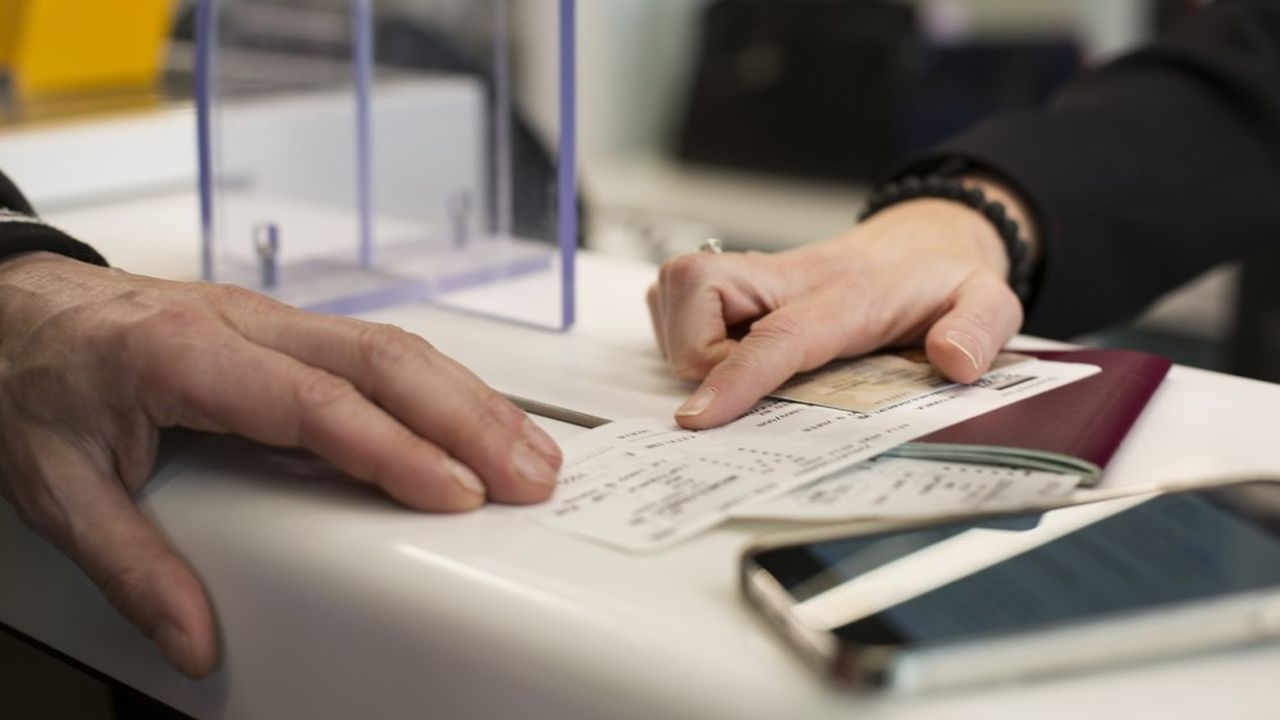
Banned from traveling. No fewer than 55 states in the world hinder the freedom of movement of their nationals for political reasons, warns the American NGO Freedom House. In a report published on August 22, the democracy defense organization highlights several practices that are not very visible but very widespread among authoritarian regimes: the ban on leaving or returning to the territory, the confiscation of passports, the refusal of consular services and the loss of nationality.
“For the average person in France or the United States, the ability to freely leave and return to their country is often taken for granted,” explains Amy Slipowitz, a researcher at Freedom House and co-author of the report. “But the travel restrictions imposed by authoritarian regimes show how pervasive their control over dissidents is.” Such practices target activists as well as journalists, or anyone perceived as an opponent of the government.
Blacklist
According to Freedom House, the preferred method used by authoritarian regimes is to prevent opponents from leaving the country, or to prohibit their return. This practice is used by at least 40 states, including Belarus, Saudi Arabia, Nicaragua and India, which establish more or less official lists of people banned from flying.
“India has experienced significant democratic decline over the last decade,” Slipowitz points out. “This democratic erosion has been accompanied by various techniques designed to control certain sections of the population, particularly in the Kashmir region.”
Passport confiscated
To prevent opponents from crossing the border, at least 38 states resort to confiscating passports. In Venezuela, Freddy Superlano, a candidate in the 2023 opposition primaries, had his document taken away by Venezuelan authorities as he tried to leave for Colombia. He was eventually arrested in Caracas, in the wake of the July presidential election, marked by the disputed victory of Nicolas Maduro.
In Russia, passport seizure has become commonplace since the invasion of Ukraine. In December 2023, a law came into force defining “exit restrictions for certain categories of citizens”. The text specifies, among other things, “the standards for invalidating passports”. Among the people targeted are secret service agents (FSB) and men summoned as part of military mobilization.
Transnational repression
Even beyond their borders, authoritarian regimes are using administrative leverage to reach out to their citizens. According to Freedom House, at least 12 states are restricting some exiles’ access to consular services, such as passport renewals. The aim is to force them to travel to their home countries to regularize their situation.
This is the case of the Chinese Communist Party, which imposes a one-way ticket to China on Uighurs exiled in Turkey to renew their papers. In September 2023, Belarus took a similar measure, making it impossible to renew passports in consulates. A measure intended to force the return of the 300,000 Belarusians exiled following the protests triggered by the controversial re-election of President Alexander Lukashenko in 2020.
Some regimes even resort to stripping nationality, at the risk of rendering the individuals concerned stateless. This practice is widespread in Bahrain, Egypt, Kuwait and the United Arab Emirates, which have stripped several hundred dissidents of their nationality over the past decade. According to the United Nations High Commissioner for Human Rights, at least 12 million people worldwide are stateless.
Responsibility of host countries
Given the extent of these practices, Freedom House points out the shortcomings of the states that welcome political refugees. The impossibility of producing a valid passport gives rise to Kafkaesque situations, since this document is often mandatory for access to health, education, or even to get married.
“We live in a very bureaucratic world,” summarizes Amy Slipowitz. According to the NGO, host countries should therefore review their copy in terms of immigration and asylum policy, in order not to “contribute to the difficulties” suffered by opponents in exile.
An alarming observation, which comes in a context of progressive erosion of democracy on a global scale. In 2024, out of 137 countries studied by the Bertelsmann Foundation, there will be only 63 democracies compared to 74 autocratic regimes. It was still the opposite four years ago.







